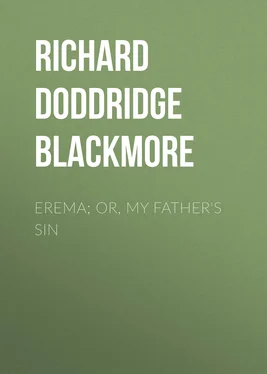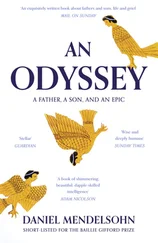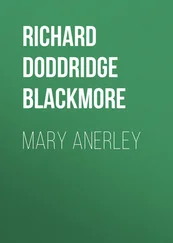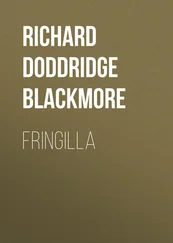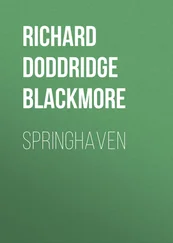Richard Doddridge Blackmore - Erema; Or, My Father's Sin
Здесь есть возможность читать онлайн «Richard Doddridge Blackmore - Erema; Or, My Father's Sin» — ознакомительный отрывок электронной книги совершенно бесплатно, а после прочтения отрывка купить полную версию. В некоторых случаях можно слушать аудио, скачать через торрент в формате fb2 и присутствует краткое содержание. Издательство: Иностранный паблик, Жанр: foreign_prose, literature_19, foreign_antique, на английском языке. Описание произведения, (предисловие) а так же отзывы посетителей доступны на портале библиотеки ЛибКат.
- Название:Erema; Or, My Father's Sin
- Автор:
- Издательство:Иностранный паблик
- Жанр:
- Год:неизвестен
- ISBN:нет данных
- Рейтинг книги:3 / 5. Голосов: 1
-
Избранное:Добавить в избранное
- Отзывы:
-
Ваша оценка:
- 60
- 1
- 2
- 3
- 4
- 5
Erema; Or, My Father's Sin: краткое содержание, описание и аннотация
Предлагаем к чтению аннотацию, описание, краткое содержание или предисловие (зависит от того, что написал сам автор книги «Erema; Or, My Father's Sin»). Если вы не нашли необходимую информацию о книге — напишите в комментариях, мы постараемся отыскать её.
Erema; Or, My Father's Sin — читать онлайн ознакомительный отрывок
Ниже представлен текст книги, разбитый по страницам. Система сохранения места последней прочитанной страницы, позволяет с удобством читать онлайн бесплатно книгу «Erema; Or, My Father's Sin», без необходимости каждый раз заново искать на чём Вы остановились. Поставьте закладку, и сможете в любой момент перейти на страницу, на которой закончили чтение.
Интервал:
Закладка:
A wanderer as I had been for years, together with my father, change of place had not supplied the knowledge which flows from lapse of time. Faith, and warmth, and trust in others had not been dashed out of me by any rude blows of the world, as happens with unlucky children huddled together in large cities. My father had never allowed me much acquaintance with other children; for six years he had left me with a community of lay sisters, in a little town of Languedoc, where I was the only pupil, and where I was to remain as I was born, a simple heretic. Those sisters were very good to me, and taught me as much as I could take of secular accomplishment. And it was a bitter day for me when I left them for America.
For during those six years I had seen my father at long intervals, and had almost forgotten the earlier days when I was always with him. I used to be the one little comfort of his perpetual wanderings, when I was a careless child, and said things to amuse him. Not that he ever played with me any more than he played with any thing; but I was the last of his seven children, and he liked to watch me grow. I never knew it, I never guessed it, until he gave his life for mine; but, poor little common thing as I was, I became his only tie to earth. Even to me he was never loving, in the way some fathers are. He never called me by pet names, nor dandled me on his knee, nor kissed me, nor stroked down my hair and smiled. Such things I never expected of him, and therefore never missed them; I did not even know that happy children always have them.
But one thing I knew, which is not always known to happier children: I had the pleasure of knowing my own name. My name was an English one—Castlewood—and by birth I was an English girl, though of England I knew nothing, and at one time spoke and thought most easily in French. But my longing had always been for England, and for the sound of English voices and the quietude of English ways. In the chatter and heat and drought of South France some faint remembrance of a greener, cooler, and more silent country seemed to touch me now and then. But where in England I had lived, or when I had left that country, or whether I had relations there, and why I was doomed to be a foreign girl—all these questions were but as curling wisps of cloud on memory’s sky.
Of such things (much as I longed to know a good deal more about them) I never had dared to ask my father; nor even could I, in a roundabout way, such as clever children have, get second-hand information. In the first place, I was not a clever child; for the next point, I never had underhand skill; and finally, there was no one near me who knew any thing about me. Like all other girls—and perhaps the very same tendency is to be found in boys—I had strong though hazy ideas of caste. The noble sense of equality, fraternity, and so on, seems to come later in life than childhood, which is an age of ambition. I did not know who in the world I was, but felt quite sure of being somebody.
One day, when the great tree had been sawn into lengths, and with the aid of many teams brought home, and the pits and the hoisting tackle were being prepared and strengthened to deal with it, Mr. Gundry, being full of the subject, declared that he would have his dinner in the mill yard. He was anxious to watch, without loss of time, the settlement of some heavy timbers newly sunk in the river’s bed, to defend the outworks of the mill. Having his good leave to bring him his pipe, I found him sitting upon a bench with a level fixed before him, and his empty plate and cup laid by, among a great litter of tools and things. He was looking along the level with one eye shut, and the other most sternly intent; but when I came near he rose and raised his broad pith hat, and made me think that I was not interrupting him.
“Here is your pipe, Uncle Sam,” I said; for, in spite of all his formal ways, I would not be afraid of him. I had known him now quite long enough to be sure he was good and kind. And I knew that the world around these parts was divided into two hemispheres, the better half being of those who loved, and the baser half made of those who hated, Sawyer Sampson Gundry.
“What a queer world it is!” said Mr. Gundry, accepting his pipe to consider that point. “Who ever would have dreamed, fifty years agone, that your father’s daughter would ever have come with a pipe to light for my father’s son?”
“Uncle Sam,” I replied, as he slowly began to make those puffs which seem to be of the highest essence of pleasure, and wisps of blue smoke flitted through his white eyebrows and among the snowy curls of hair—“dear Uncle Sam, I am sure that it would be an honor to a princess to light a pipe for a man like you.”
“Miss Rema, I should rather you would talk no nonsense,” he answered, very shortly, and he set his eye along his level, as if I had offended him. Not knowing how to assert myself and declare that I had spoken my honest thoughts, I merely sat down on the bench and waited for him to speak again to me. But he made believe to be very busy, and scarcely to know that I was there. I had a great mind to cry, but resolved not to do it.
“Why, how is this? What’s the matter?” he exclaimed at last, when I had been watching the water so long that I sighed to know where it was going to. “Why, missy, you look as if you had never a friend in all the wide world left.”
“Then I must look very ungrateful,” I said; “for at any rate I have one, and a good one.”
“And don’t you know of any one but me, my dear?”
“You and Suan Isco and Firm—those are all I have any knowledge of.”
“‘Tis a plenty—to my mind, almost too many. My plan is to be a good friend to all, but not let too many be friends with me. Rest you quite satisfied with three, Miss Rema. I have lived a good many years, and I never had more than three friends worth a puff of my pipe.”
“But one’s own relations, Uncle Sam—people quite nearly related to us: it is impossible for them to be unkind, you know.”
“Do I, my dear? Then I wish that I did. Except one’s own father and mother, there is not much to be hoped for out of them. My own brother took a twist against me because I tried to save him from ruin; and if any man ever wished me ill, he did. And I think that your father had the same tale to tell. But there! I know nothing whatever about that.”
“Now you do, Mr. Gundry; I am certain that you do, and beg you to tell me, or rather I demand it. I am old enough now, and I am certain my dear father would have wished me to know every thing. Whatever it was, I am sure that he was right; and until I know that, I shall always be the most miserable of the miserable.”
The Sawyer looked at me as if he could not enter into my meaning, and his broad, short nose and quiet eyes were beset with wrinkles of inquiry. He quite forgot his level and his great post in the river, and tilted back his ancient hat, and let his pipe rest on his big brown arm. “Lord bless me!” he said, “what a young gal you are! Or, at least, what a young Miss Rema. What good can you do, miss, by making of a rout? Here you be in as quiet a place as you could find, and all of us likes and pities you. Your father was a wise man to settle you here in this enlightened continent. Let the doggoned old folk t’other side of the world think out their own flustrations. A female young American you are now, and a very fine specimen you will grow. ‘Tis the finest thing to be on all God’s earth.”
“No, Mr. Gundry, I am an English girl, and I mean to be an Englishwoman. The Americans may be more kind and generous, and perhaps my father thought so, and brought me here for that reason. And I may be glad to come back to you again when I have done what I am bound to do. Remember that I am the last of seven children, and do not even know where the rest are buried.”
Читать дальшеИнтервал:
Закладка:
Похожие книги на «Erema; Or, My Father's Sin»
Представляем Вашему вниманию похожие книги на «Erema; Or, My Father's Sin» списком для выбора. Мы отобрали схожую по названию и смыслу литературу в надежде предоставить читателям больше вариантов отыскать новые, интересные, ещё непрочитанные произведения.
Обсуждение, отзывы о книге «Erema; Or, My Father's Sin» и просто собственные мнения читателей. Оставьте ваши комментарии, напишите, что Вы думаете о произведении, его смысле или главных героях. Укажите что конкретно понравилось, а что нет, и почему Вы так считаете.
